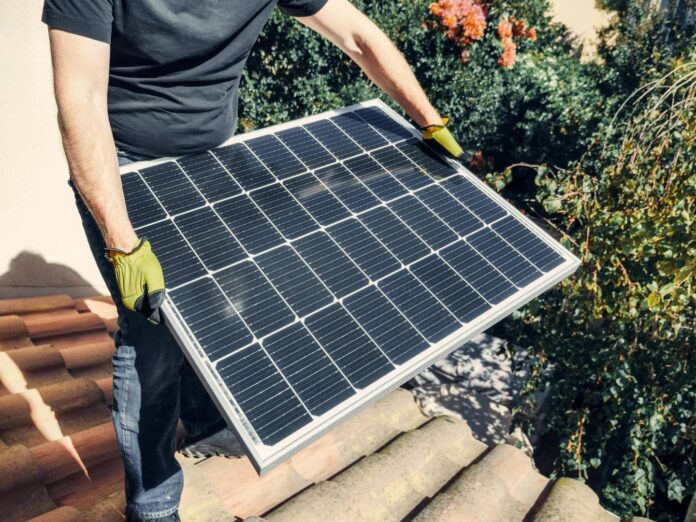With rising energy prices and an increasing focus on sustainability, many homeowners and businesses are considering solar panels as a way to reduce electricity costs and lower their carbon footprint. However, one of the biggest questions when making this investment is how long it will take to see a return.
The payback period for solar panels depends on several factors, including installation costs, energy savings, government incentives, and how much electricity you generate. This guide explores the real payback period for solar panels, breaking down the costs and potential savings to help you decide if solar energy is right for you.
Understanding the Costs of Solar Panels
The cost of solar panel installation varies depending on the size of the system, the type of panels used, and any additional equipment, such as battery storage. On average, a residential solar PV system in the UK costs between £5,000 and £8,000 for a standard 4kW system.
Key Factors That Affect Solar Panel Costs
- System Size – Larger systems generate more electricity but come at a higher upfront cost.
- Quality of Panels – Premium solar panels have higher efficiency and durability but may be more expensive.
- Installation Costs – Labour and mounting equipment can impact the overall price.
- Battery Storage – Adding a battery increases costs but allows energy storage for use during peak hours.
- Government Incentives – VAT relief and Smart Export Guarantee payments can reduce the net cost.
While the upfront cost may seem significant, the long-term savings on energy bills and government support make solar energy a smart financial investment.
How Much Can You Save with Solar Panels?
One of the main benefits of solar panels is the ability to generate free electricity, reducing your reliance on the National Grid. The amount you save depends on your system’s size, how much energy you use, and whether you sell excess electricity back to the grid.
Average Energy Savings
A typical 4kW solar panel system in the UK can generate around 3,500-4,500 kWh of electricity per year. The average household consumes around 3,800 kWh annually, meaning a well-placed solar PV system can significantly reduce electricity bills.
- A home with solar panels can save between £200 and £400 per year on electricity costs.
- Using a solar battery can increase savings by allowing stored energy to be used during peak times.
- Households that take advantage of the Smart Export Guarantee can earn additional income by selling surplus electricity to the grid.
Calculating the Payback Period for Solar Panels
The payback period refers to how long it takes for the savings from solar panels to cover the initial installation costs. To calculate this, divide the total cost of installation by the annual savings on energy bills and Smart Export Guarantee earnings.
Example Payback Calculation
- Installation Cost: £6,500 for a 4kW system
- Annual Energy Bill Savings: £300
- Smart Export Guarantee Earnings: £150
- Total Annual Savings: £450
- Payback Period: £6,500 ÷ £450 = 14.4 years
This means that after approximately 14 years, the system will have paid for itself through energy savings and SEG payments. Since most solar panels have a lifespan of 25-30 years, homeowners can enjoy over a decade of free electricity after the payback period.
Ways to Reduce the Payback Period
While the average payback period is between 10-15 years, several factors can help shorten it, making solar energy even more financially attractive.
Take Advantage of Government Incentives
The UK government offers financial support to make solar panels more affordable:
- Zero VAT on Solar Panels – Homeowners benefit from 0% VAT on solar PV installations until 2027, reducing costs.
- Smart Export Guarantee – Payments from energy suppliers for surplus electricity help increase returns.
- Local Grants and Funding – Some local councils offer financial incentives for energy-efficient home improvements.
Maximise Energy Usage
Using as much of your solar-generated electricity as possible reduces reliance on the grid, increasing savings. Strategies include:
- Running appliances during daylight hours when panels are generating energy.
- Installing a solar battery to store excess energy for evening use.
- Using smart meters and energy-efficient devices to optimise consumption.
Compare Energy Supplier Tariffs
Different energy suppliers offer varying Smart Export Guarantee rates. By comparing suppliers and switching to one that offers a higher SEG tariff, homeowners can earn more from their exported electricity, reducing the payback period.
Consider a Solar Battery Storage System
A solar battery allows homeowners to store energy instead of exporting it to the grid. This reduces the need to buy electricity from suppliers during the evening when solar panels are not generating power. While adding a battery increases upfront costs, it can provide additional savings in the long run.
The Long-Term Benefits of Solar Panels
Beyond the payback period, solar panels offer long-term financial and environmental benefits that make them a worthwhile investment.
Increased Property Value
Homes with solar panels are often more attractive to buyers, as they come with the advantage of lower energy bills. Studies suggest that properties with renewable energy systems sell faster and at a higher price than those without.
Protection Against Rising Energy Prices
Electricity prices have been increasing over the years, and generating your own renewable energy provides long-term protection against further rises. This makes solar panels a smart hedge against inflation in energy costs.
Reduced Carbon Footprint
Solar energy is a clean and renewable source of power that helps reduce carbon emissions. A typical solar PV system can offset several tonnes of CO2 emissions over its lifetime, contributing to a more sustainable future.
Minimal Maintenance Costs
Once installed with The Solar Co, solar panels require very little maintenance. They are designed to withstand various weather conditions and only need occasional cleaning and servicing to ensure they continue operating efficiently.
Is Solar Energy Worth the Investment?
While the payback period for solar panels varies depending on factors such as installation costs, energy usage, and government incentives, most homeowners in the UK can expect to break even within 10-15 years. After that, they enjoy free electricity and long-term savings for the remaining lifespan of the system.
Solar energy is not only an environmentally friendly choice but also a financially sound investment. With energy prices continuing to rise, switching to solar power provides long-term financial security while reducing reliance on fossil fuels.
In Conclusion
The real payback period for solar panels depends on various factors, including installation costs, household energy consumption, and government incentives. While the upfront investment may seem significant, the long-term savings, increased property value, and environmental benefits make solar panels a worthwhile investment.
By taking advantage of financial support schemes, maximising energy usage, and considering battery storage, homeowners can reduce the payback period and enjoy the full benefits of solar energy for decades to come.
Help keep news FREE for our readers
Supporting your local community newspaper/online news outlet is crucial now more than ever. If you believe in independent journalism, then consider making a valuable contribution by making a one-time or monthly donation. We operate in rural areas where providing unbiased news can be challenging. Read More About Supporting The West Wales Chronicle
























